Monkeypox Transmission in Public Settings
Posted August 9, 2022 by Michael Hokanson
How to Prevent Spread of Infection
The Georgia Department of Public Health (DPH) continues to closely monitor the current outbreak of monkeypox in the state. As of today, there are 625 confirmed monkeypox cases in Georgia. Testing and vaccination are available in health districts throughout the state; however, vaccine supplies from the federal government remain limited.
The monkeypox virus can spread from person-to-person through direct contact with the infectious rash, scabs, or body fluids. It also can be spread by respiratory secretions during prolonged, face-to-face contact, or during intimate physical contact, such as kissing, cuddling, or sex.
More than 90% of the people with monkeypox in the current outbreak generally report having close, sustained physical contact with other people who have monkeypox. While many of those affected in the current global outbreaks are gay, bisexual, or other men who have sex with men, anyone who has been in close contact with someone who has monkeypox can get the illness.
Touching items (such as clothing or linens) that previously touched the infectious rash or body fluids is another way monkeypox spreads but has not been identified to be a common mode of transmission in this outbreak or for monkeypox in general.
The risk of contracting monkeypox is based on exposure – an individual must be exposed to enough virus to become infected. What is currently known about monkeypox transmission indicates that sharing bedding or towels with someone who is infected with monkeypox would carry more risk than passing encounters with money or a door handle or other environmental surfaces.
Most settings where people congregate such as workplaces, schools, grocery stores, gas station, or public transportation are not considered high risk settings for monkeypox transmission. It is important to remember that monkeypox is not transmitted like COVID and typically takes skin-to-skin or other close contact to transmit. Unlike COVID or measles, this means far lower risk to persons that may be in a room with someone with monkeypox, but who do not have contact with the infected individual.
There are things you can do to protect yourself from getting monkeypox:
- Avoid close, skin-to-skin contact with people who have a rash that looks like monkeypox.
- Do not touch the rash or scabs of a person with monkeypox.
- Do not kiss, hug, cuddle or have sex with someone with monkeypox.
- Avoid contact with objects and materials that a person with monkeypox has used.
- Do not share eating utensils or cups with a person with monkeypox.
- Do not handle or touch the bedding, towels, or clothing of a person with monkeypox.
- Wash your hands often with soap and water or use an alcohol-based hand sanitizer, especially before eating or touching your face and after you use the bathroom.
For more information on monkeypox, visit https://dph.georgia.gov/monkeypox or https://www.cdc.gov/poxvirus/monkeypox/index.html.


 Contact Us
Contact Us Locations
Locations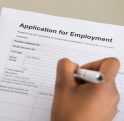 Job Openings at North Central Health District
Job Openings at North Central Health District Internships
Internships Board of Health
Board of Health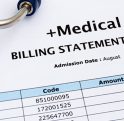 Cost and Insurance
Cost and Insurance Privacy Policy
Privacy Policy Teens & Adults
Teens & Adults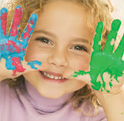 For Children
For Children Other Programs
Other Programs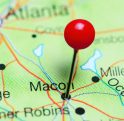 County Environmental Health Offices
County Environmental Health Offices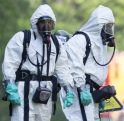 Chemical Hazards
Chemical Hazards Tourist Accommodations
Tourist Accommodations Food Service
Food Service Rabies Control
Rabies Control Lead Poisoning Prevention
Lead Poisoning Prevention Body Art
Body Art Land Use
Land Use Swimming Pool Program
Swimming Pool Program Water Testing for Private Wells
Water Testing for Private Wells Environmental Health Complaints
Environmental Health Complaints Georgia Food Recall Alerts
Georgia Food Recall Alerts Personal & Family Preparedness
Personal & Family Preparedness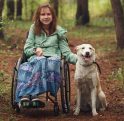 Emergency Preparedness for Functional & Access Needs
Emergency Preparedness for Functional & Access Needs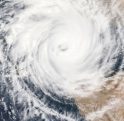 Severe Weather Preparedness
Severe Weather Preparedness Emergency Preparedness Training
Emergency Preparedness Training Medical Reserve Corps
Medical Reserve Corps Regional Healthcare Coalitions
Regional Healthcare Coalitions Strategic National Stockpile/Medical Countermeasures
Strategic National Stockpile/Medical Countermeasures